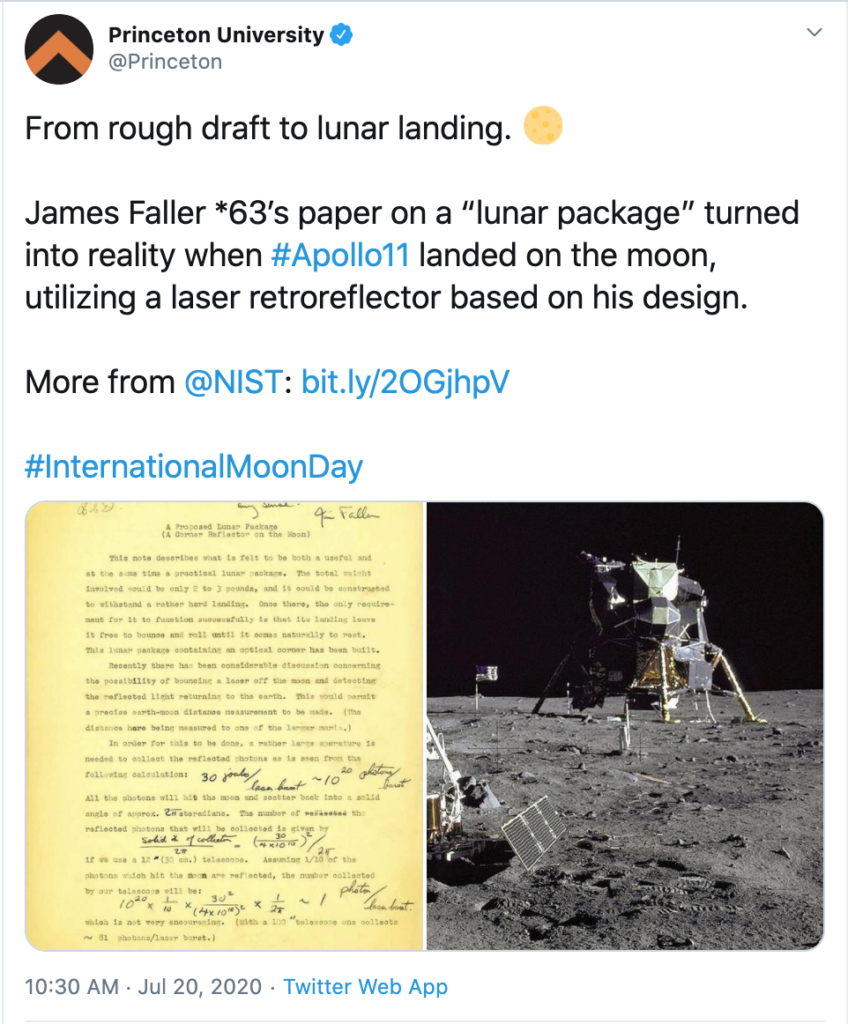From Voice of America: Noting that only a handful of the 3,500 species of mosquito feeds on human blood, researchers at Princeton University set out to determine why certain mosquitoes feed on humans.https://bit.ly/3fgZSGY
Category Archives: Uncategorized
‘The early warning signs are not pretty’: Eviction Lab researchers study end of federal moratorium
From The Daily Princetonian: As federal measures to mitigate the occupational, financial, and personal strain of the COVID-19 pandemic begin to expire, the country faces an unprecedented crisis of eviction — and according to University researchers, few people are paying attention. https://bit.ly/2PaU7zV
The worm in the bud: Do parasites interfere with immunization?
Parasites do tend to interfere with the immune system’s response to a vaccine, report a team of Princeton ecologists who reviewed and analyzed the literature of parasitic infections and vaccinations.https://bit.ly/2P9nMtw
Accomplished early career physicist is first recipient of fellowship that honors pioneering PPPL physicist Robert Ellis Jr.
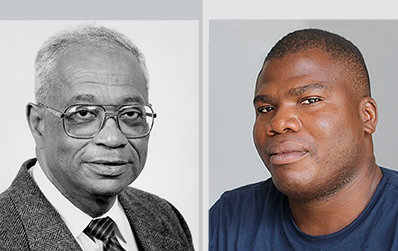
From PPPL: An early career physicist with a strong background in plasma physics who is focused on laser-based diagnostics has been appointed to a fellowship that honors pioneering physicist Robert A. Ellis Jr. and is aimed at encouraging more diversity in plasma physics research at the Princeton Plasma Physics Laboratory (PPPL). https://bit.ly/3hVYcVi
Climate modeling at Princeton

Princeton’s vital research across the spectrum of environmental issues is today and will continue to be pivotal to solving some of humanity’s toughest problems. Our impact is built on a long, deep, broad legacy of personal commitment, intellectual leadership, perseverance and innovation. This article is the first in a series to present the sweep of Princeton’s environmental excellence over the past half-century. https://bit.ly/30h1SuP
Center for materials of the future awarded $18M six-year funding
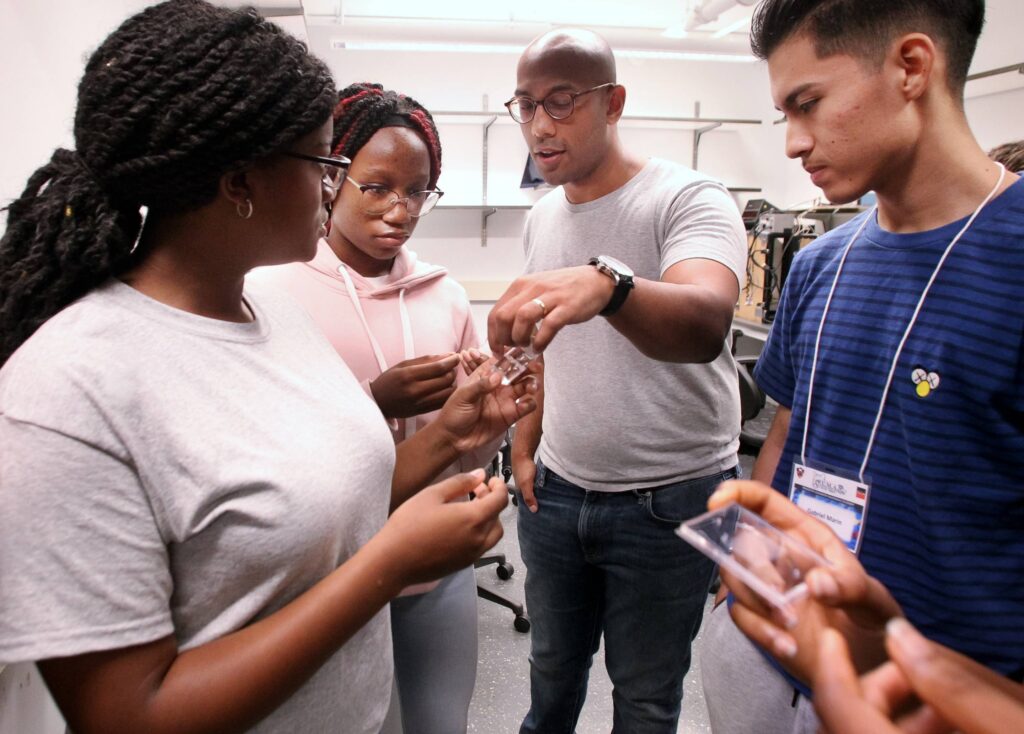
The Princeton Center for Complex Materials, a research center at Princeton University dedicated to discovering the materials of the future and training a globally competitive and diverse workforce, has been selected by the National Science Foundation (NSF) to expand its groundbreaking interdisciplinary mission into two new areas: quantum technologies and biology-inspired materials.https://bit.ly/3jVlH2q
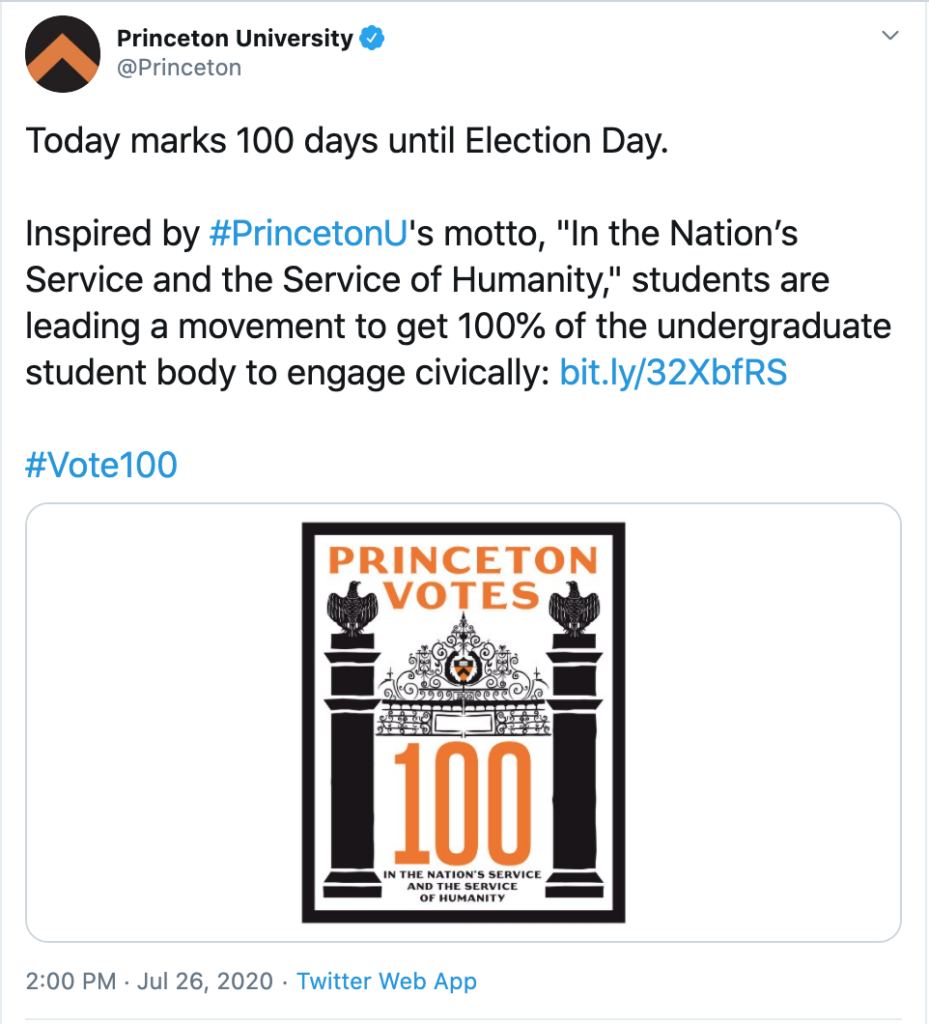
Office of Sustainability solicits feedback on draft of Environmental Justice Framework
From The Daily Princetonian: Shortly after University President Christopher Eisgruber ’83 asked the University’s senior leaders to identify how they could confront racism, the Office of Sustainability posted a draft of initial anti-racist action items. The Office invited feedback on 19 proposals written in solidarity with the Black Lives Matter movement. https://bit.ly/33fGwQe
Princeton University Summer Chamber Concerts Presents Manhattan Chamber Players in Online Performance of Beethoven
From Town Topics: Although unable to appear live in Princeton this summer as part of Princeton University Summer Chamber Concerts, Manhattan Chamber Players did not want to miss out on Beethoven’s 250th anniversary, and made the most of technology by presenting an online performance last Wednesday night in a continuation of the Chamber Concerts “Chamber Music Wednesdays” series. https://bit.ly/33cYjaI
The top 50 U.S. colleges that pay off the most in 2020
From CNBC: Princeton is listed fourth among the top 25 private universities. https://cnb.cx/2Xa5Vaf
Princeton Small Business Resiliency Fund supports local businesses; first donors include Princeton University, Stark & Stark law firm
From Centraljersey.com: The Princeton Small Business Resiliency Fund’s founding donor, Princeton University, made an initial $250,000 donation to establish the fund and is providing an additional $100,000 of matching funds. https://bit.ly/316Psoj
Returning to the (Virtual) Campus: Activism, Anti-racism, and Transforming Community
A virtual conversation about how to engage college campuses in the work of activism, anti-racism and transforming community amidst the COVID-19 pandemic will be held Tuesday, Aug. 4, from 4 to 5:30 p.m. ET. The Difficult Dialogues National Resource Center (DDNRC) in partnership with Princeton University and Washington University will host the webinar. The event will be streamed live via Facebook.
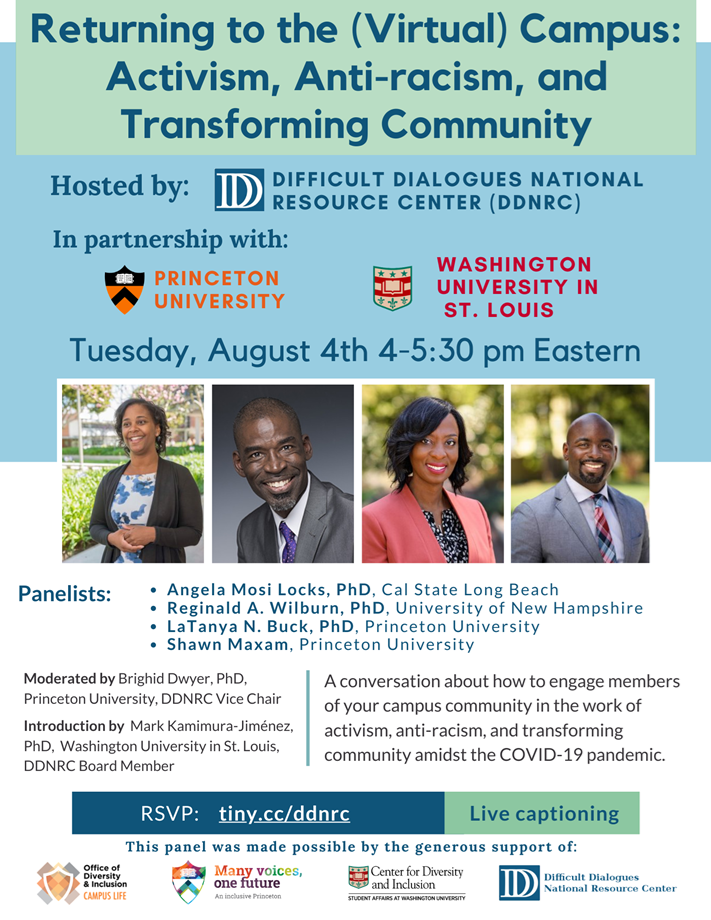
Principles of Inclusivity and Free Speech
Princeton University cherishes both inclusivity and free speech, which can be protected even when the speech in question is “unwelcome, disagreeable, or even deeply offensive” (Rights, Rules, Responsibilities 1.1.3). Our commitment to free speech, however, does not allow us to shirk our obligation to maintain a campus climate of enduring mutual respect.
A number of recent statements, publications, or postings on social media have offended and insulted many members of our community. As is our usual practice, we assessed those brought to our attention in light of Princeton’s expressed principles of free speech and respect for others and concluded that they do not represent violations of University policy.
But even if certain instances of the use of offensive language—including racial, ethnic, gender, or other slurs—may be protected by our policies, depending on the context, they are upsetting, damaging, and unconstructive, and do not match the values of our community. Indeed, such language is contrary to Princeton’s commitment to stand for inclusivity and against racism. Such language is especially harmful in light of recent activism, in which long-standing structural racial inequities in society and on our own campus have been acknowledged.
We are now engaged in conversations with a wide range of students and faculty about how to better foster an environment for debate that aligns with our values. We plan to schedule a series of facilitated dialogues for all members of our community who would like to engage constructively on these essential topics.
We call on everyone to consider the weight and impact of their words. We agree with President Eisgruber, who recently affirmed the University’s commitment to respectful and productive engagement within a free speech context. We must emphasize that racism, prejudice, and bigotry have no place at Princeton. We will not allow the important values of inclusivity and free speech to be pitted against each other, and we will continue to uphold both of these principles that are so vital to Princeton’s mission. We invite you all to participate in this necessary work.
Be well,
W. Rochelle Calhoun, Vice President for Campus Life
Cole Crittenden, Acting Dean of the Graduate School
Jill Dolan, Dean of the College
Sanjeev Kulkarni, Dean of the Faculty
Michele Minter, Vice Provost for Institutional Equity and Diversity
Lianne Sullivan-Crowley, Vice President for Human Resources
How one Princetonian joins his fellow Tigers in a spirit of service
As Princeton continues to meet the challenge of COVID-19 while pursuing its academic mission, senior research specialist Eric Mills’ own lab training at the University gave him a special sort of insight as he confronts the coronavirus pandemic as an EMT volunteer. Among the many Princetonians around the world responding in a spirit of service, Mills is serving the local area with the Princeton First Aid & Rescue Squad. He said his work in the nanofabrication lab of the Princeton Institute for the Science and Technology of Materials taught him the value of personal protection. Mills is one of numerous members of the Princeton community — mainly staff and students — who are volunteering for local rescue squads during these dangerous days of COVID-19. Keep reading below for more on Mills’ story.
Stay safe and healthy.
Michael Hotchkiss, Ayana Gibbs, Jess Fasano, and Ben Chang
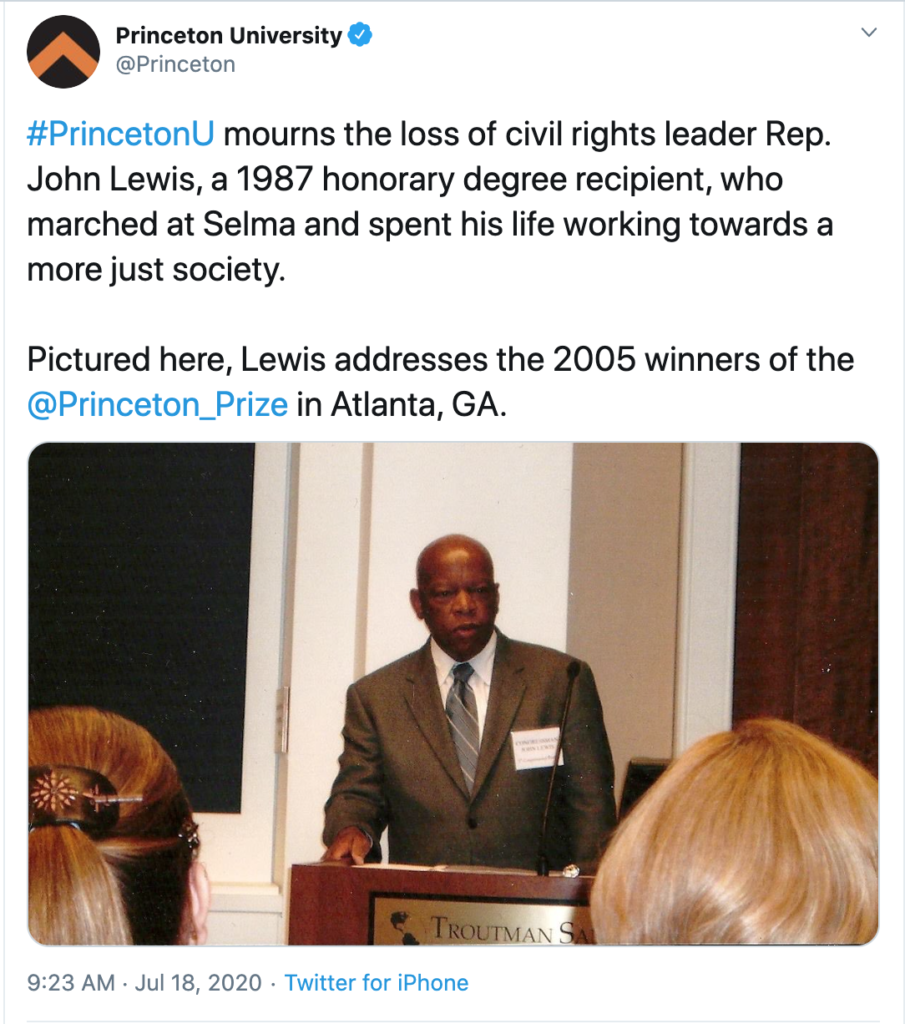
Bioengineer Clifford Brangwynne named 2020 Blavatnik National Awards laureate
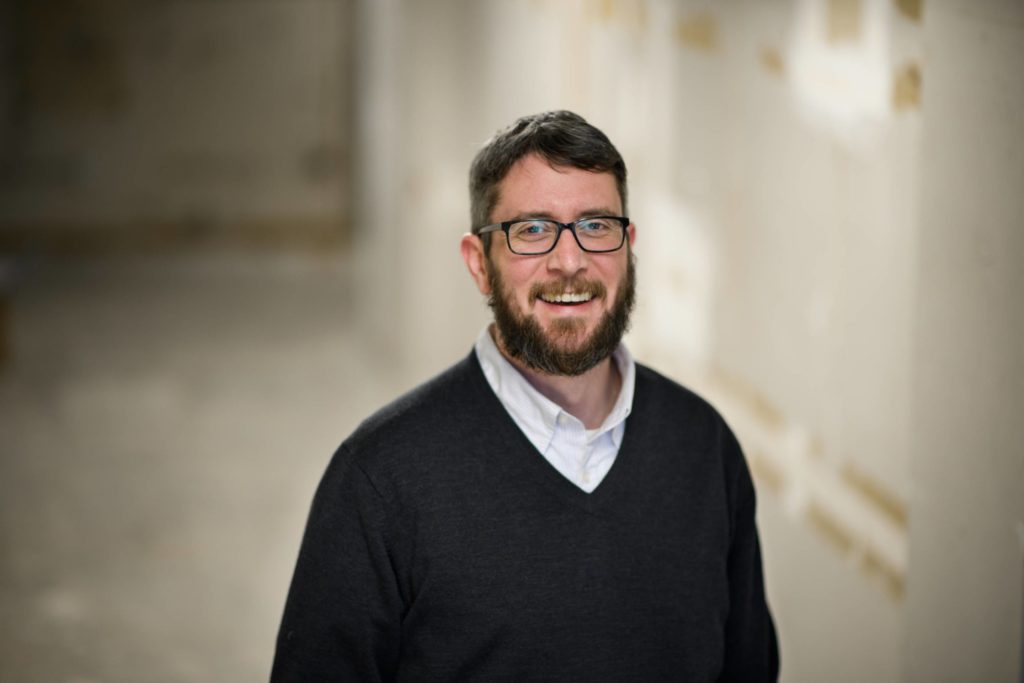
Clifford Brangwynne, a biophysical engineer who transformed the way scientists see cell biology, has won the 2020 Blavatnik National Award in Life Sciences. The award recognizes Brangwynne for his pioneering work on cells’ internal organization.https://bit.ly/2D1ehcY
Astrophysicist Adam Burrows wins international prize for brown dwarf and exoplanet research
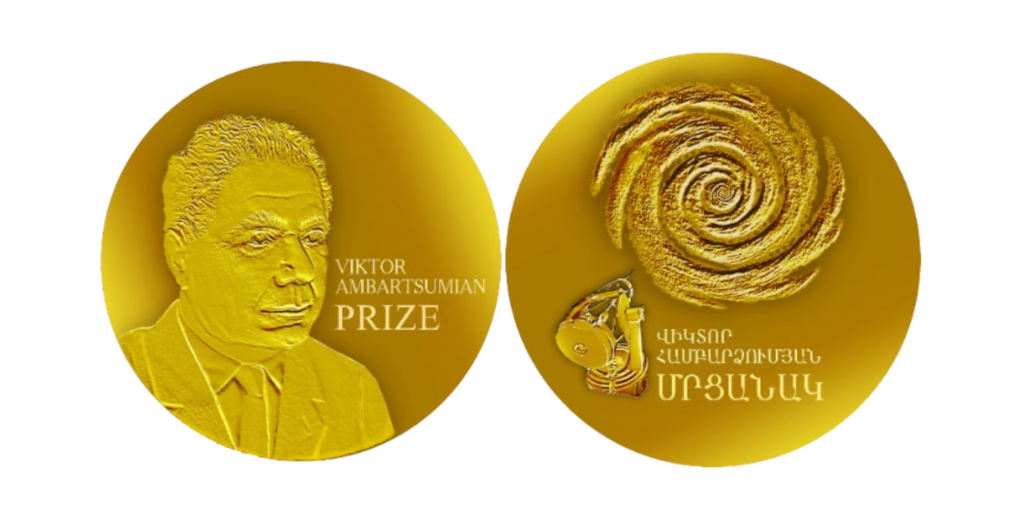
The Republic of Armenia announced on July 18 that Princeton astrophysicist Adam Burrows is one of three recipients of the Viktor Ambartsumian International Science Prize “for his seminal and pioneering contributions to the theories of brown dwarfs and exoplanets and for his leadership role in educating a generation of scientists at the frontiers of brown dwarf and exoplanet research.”https://bit.ly/3hwLprT
Bruce G. Blair, acclaimed expert on the risks of nuclear war, dies at 72
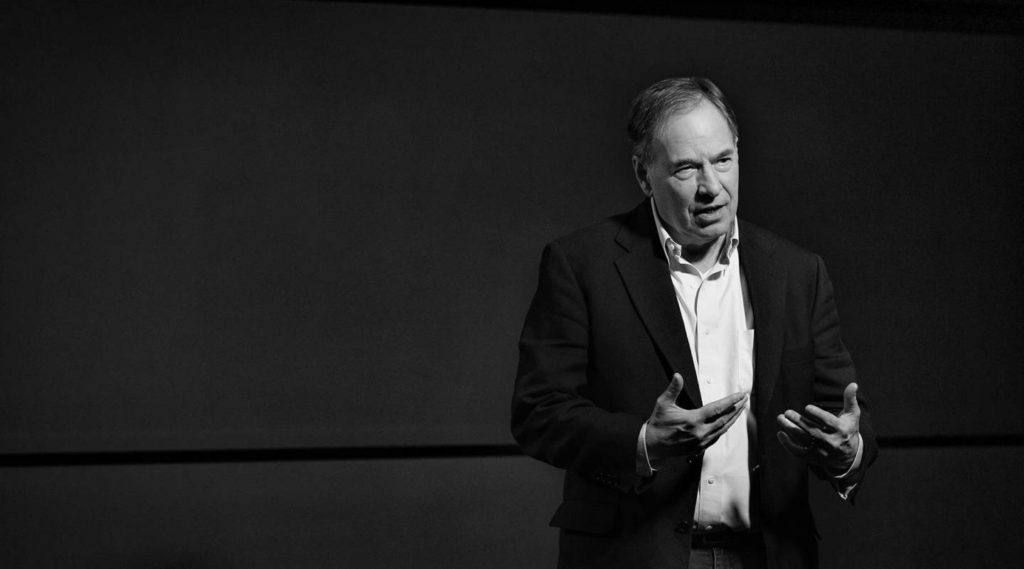
Blair, who was based at Princeton University’s Program on Science and Global Security (SGS), spent his professional career exploring and explaining the largely unforeseen risks of accidental nuclear war. Blair revealed how these much-greater-than-expected risks were not an accident, but an inevitable outcome of prevailing nuclear postures and policies, and systems of nuclear command and control.https://bit.ly/3eY4Lob
Related in the media:
- The Washington Post: Bruce Blair, leading voice for nuclear arms control, dies at age 72
- The Wall Street Journal: Bruce G. Blair Manned Nuclear Weapons, Then Warned About Them
